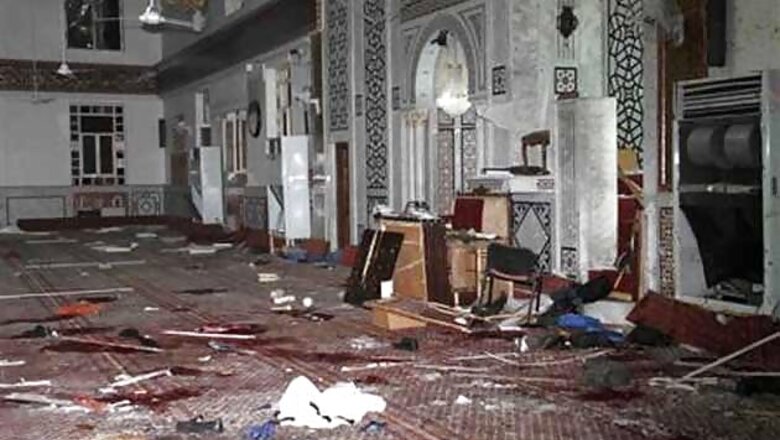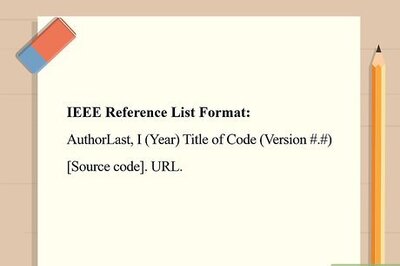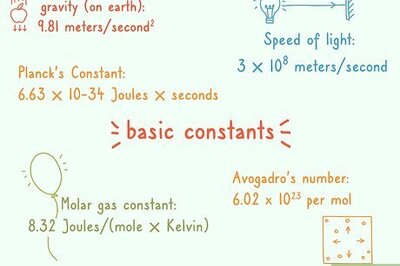
views
Beirut: A suicide bomb ripped through a mosque in the heart of the Syrian capital on Thursday, killing a top Sunni Muslim preacher and outspoken supporter of President Bashar Assad in one of the most stunning assassinations of Syria's 2-year-old civil war. At least 41 others were killed and more than 84 wounded.
The slaying of Sheikh Mohammad Said Ramadan al-Buti removes one of the few remaining pillars of support for Assad among the majority Sunni sect that has risen up against him.
It also marks a new low in the Syrian civil war. While suicide bombings blamed on Islamic extremists fighting with the rebels have become common, Thursday's attack was the first time a suicide bomber detonated his explosives inside a mosque.
A prolific writer whose sermons were regularly broadcast on TV, the 84-year-old al-Buti was killed while giving a religious lesson to students at the Eman Mosque in the central Mazraa district of Damascus.
The most senior religious figure to be killed in Syria's civil war, his assassination was a major blow to Syria's embattled leader, who is fighting mainly Sunni rebels seeking his ouster. Al-Buti has been a vocal supporter of the regime since the early days of Assad's father and predecessor, the late President Hafez Assad, providing Sunni cover and legitimacy to their rule. Sunnis are the majority sect in Syria while Assad is from the minority Alawite sect - an offshoot of Shiite Islam.
"The blood of Sheik al-Buti will be a fire that ignites the entire world," said Grand Mufti Ahmad Badreddine Hassoun, the country's top state-appointed Sunni Muslim cleric and an Assadloyalist.
Syrian TV showed footage of wounded people and bodies with severed limbs on the mosque's blood-stained floor, and later, corpses covered in white body bags lined up in rows. Sirens wailed through the capital as ambulances rushed to the scene of the explosion, which was sealed off by the military.
Among those killed was al-Buti's grandson, the TV said.
The bombing was among the most serious security breaches in the capital. An attack in July that targeted a high-level government crisis meeting killed four top regime officials, including Assad's brother-in-law and the defense minister.
Last month, a car bomb that struck in the same area, which houses the headquarters of Syria's ruling Baath party, killed at least 53 people and wounded more than 200 others in one of the deadliest Damascus bombings of the civil war.
A small, frail man, al-Buti was well known in the Arab world as a religious scholar and longtime imam at the eighth-century Omayyad Mosque, a Damascus landmark. State TV said he has written 60 books and religious publications.
In recent months, Syrian TV has carried al-Buti's sermons from mosques in Damascus live every week. He also has a regular religious TV program.
There was no immediate claim of responsibility for Thursday's attack. mong the opposition, there was a mixture of suspicion and shock that an elderly religious figure such as al-Bouti would be targeted by a suicide bomber inside a mosque.
"I don't know of a single opposition group that could do something like this," said Walid al-Bunni, a spokesman for the Syrian National Coalition opposition group, speaking on Al-Arabiya TV.
Syrian TV began its evening newscast with an announcement from the religious endowments minister, Mohammad Abdelsattar al-Sayyed, declaring al-Buti's "martyrdom" as his voice choked up. It then showed parts of al-Buti's sermon from last Friday, in which he praised the military for battling the "mercenaries sent by America and the West" and said Syria was being subjected to a "universal conspiracy."


















Comments
0 comment